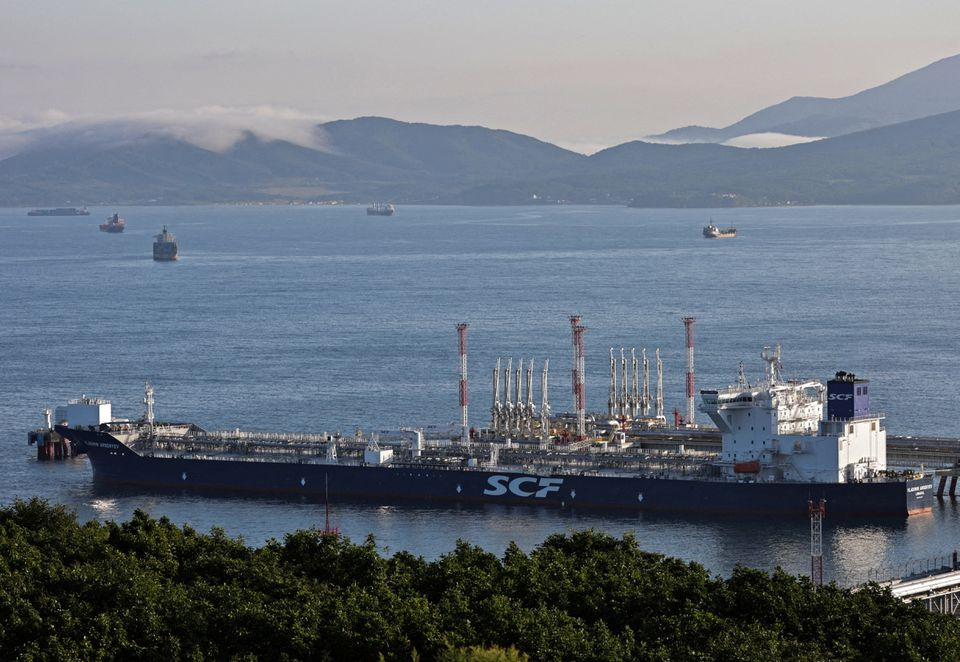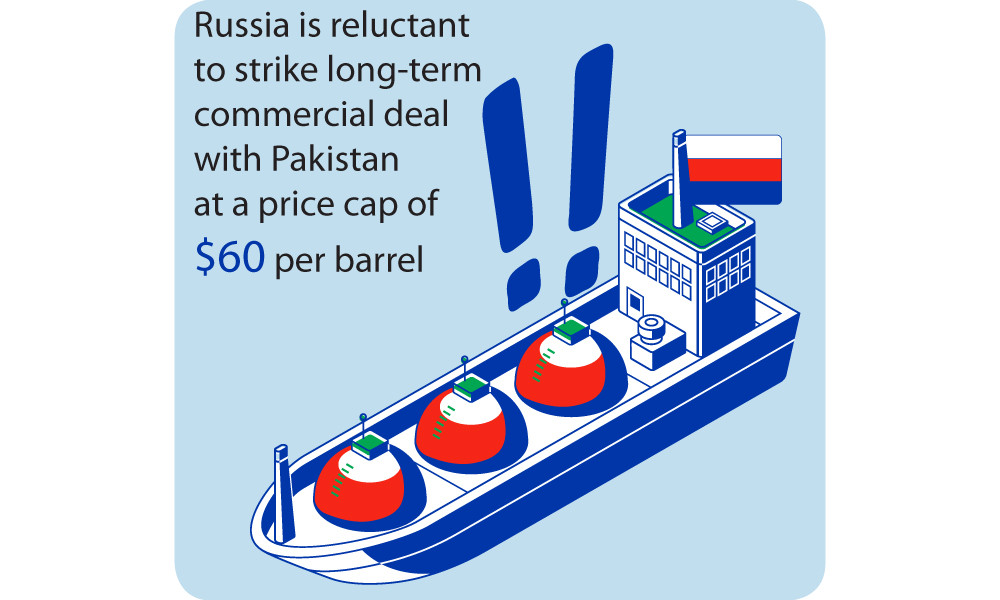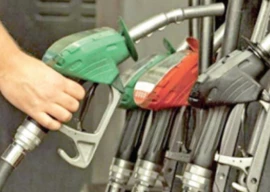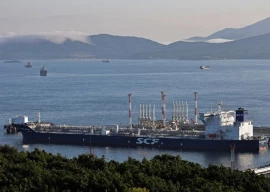
Russia is reluctant to strike a long-term commercial oil export agreement with Pakistan at a price cap of $60 per barrel, say officials.
The European Union and the United States had agreed in December 2022 to slap a price cap of $60 per barrel on Russian crude supplies in a bid to put pressure on Moscow and choke revenue flows over its war in Ukraine. The cap was also aimed at ensuring continuous supplies and avoiding potential shortage of the fuel across world markets.
Washington has given its concurrence for Pakistan’s oil deal with Russia while remaining within the price ceiling. However, Moscow has rejected the price cap.
Pakistan’s government had decided in October to negotiate a long-term oil supply pact with Russia within the price cap. It wants Russia to set free-on-board price at $60 per barrel. Free on board means the actual price charged at port.

design: Ibrahim Yahya
However, Pakistan shelved plans for a government-to-government contract and instead allowed Pakistan Refinery Limited (PRL) to clinch a crude purchase agreement on a commercial basis.
Following that, PRL struck a long-term contract with plans to bring first cargo in December this year.
PRL had been nominated as a procuring entity as per commitments made in the Pakistan-Russia Inter-governmental Commission meeting in January 2023.
PRL will purchase crude oil from Russia according to commercial terms, as agreed from time to time, without violating the international commitments of Pakistan and the international framework governing such transactions.
The refinery has already imported 100,000 tons of Russian Urals crude and processed it successfully. It also made a profit on that transaction. The oil was loaded at a Russian port and offloaded at an Oman port on two small shuttle vessels for onward delivery at Karachi port.
Though PRL, on sidelines of the Russian Energy Forum in October this year, inked a long-term agreement with its Russian counterpart for crude oil supply at mutually agreed specifications, during commercial negotiations, the Russian side did not show its willingness to enter into long-term contracts at the price cap.
In a bid to break deadlock, a Russian delegation is set to arrive on Tuesday (today) to meet key Pakistani officials.
Sources pointed out that Pakistan could not agree on an agreement that would be in breach of the price cap, which could invite US sanctions.
Read: PRL clinches long-term oil supply deal with Russia
Earlier, Russia shipped one crude oil cargo of 100,000 tons that took one month to reach Pakistan. Freight cost was also borne by the Russian side.
However, “if Russia does not pay freight charges on future cargoes, a deal may be unlikely,” an official remarked.
Experts say Pakistan can benefit from Russia crude oil if it makes regular imports.
The above crude cargo was brought on a trial basis, which PRL processed at a cost cheaper by $7 per barrel.
Russian crude is said to produce 32% high-speed diesel (HSD) and 50% furnace oil as compared to the Arabian Light crude that produces 45% HSD and 25% furnace oil.
Initially, PRL blended 50% Russian oil with the same quantity of Arabian Light being imported from the Gulf market. Later, it mixed 35% Russian crude with 65% Arabian oil that produced a low quantity of furnace oil.
So far, Pakistan has been relying on the Middle East market for its oil requirement but the import of Russian oil has opened a new avenue, which will diversify markets.
Meanwhile, PRL has awarded a contract to contractors for kicking off work on doubling its production capacity from the current 50,000 barrels per day (bpd) to 100,000 bpd. With the expansion of the refinery, there will be potential for significant imports from Russia as well.
Published in The Express Tribune, November 28th, 2023.
Like Business on Facebook, follow @TribuneBiz on Twitter to stay informed and join in the conversation.
1725967717-0/Untitled-design-(3)1725967717-0-405x300.webp)
1719925273-0/BeFunky-collage-(46)1719925273-0-165x106.webp)
1730412280-0/kamala-(3)1730412280-0-165x106.webp)






1730363250-0/BeFunk_§_]-(7)1730363250-0.jpg)









COMMENTS
Comments are moderated and generally will be posted if they are on-topic and not abusive.
For more information, please see our Comments FAQ